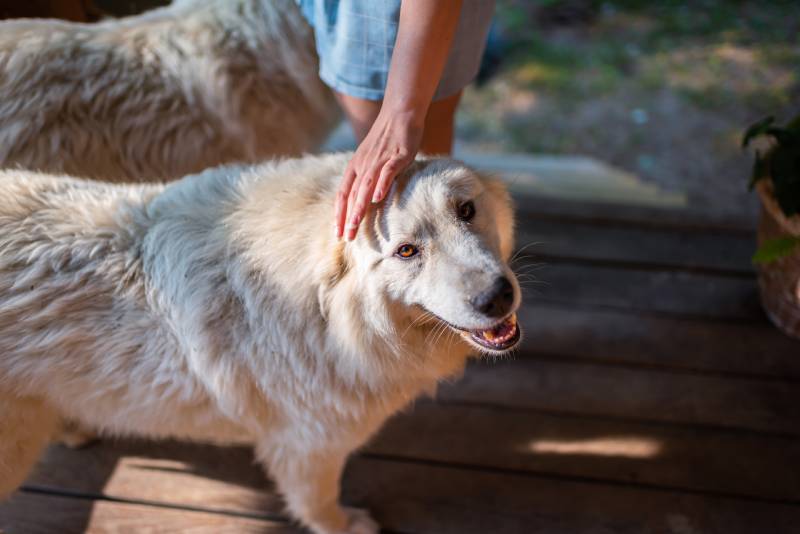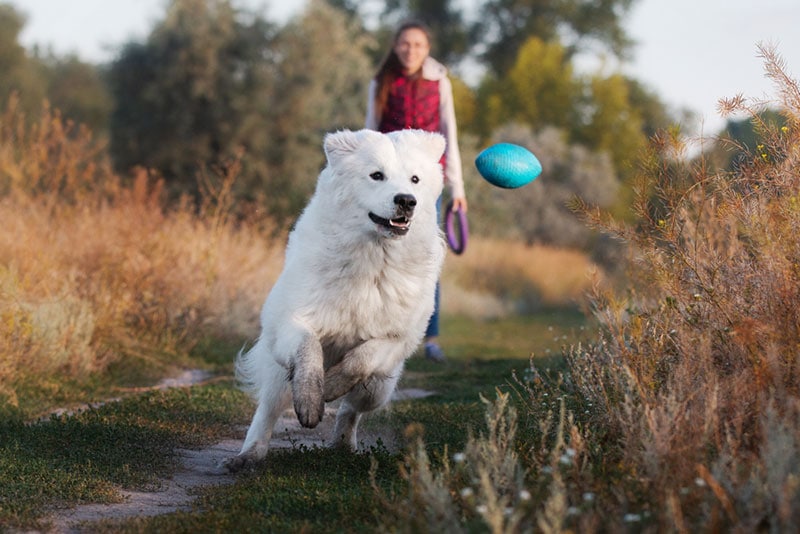How to Name a Dog: 9 Tips for Choosing the Perfect Moniker
By Jordyn Alger
Updated on

Adopting a dog is an incredible experience you’ll never forget. Plenty of preparations go into welcoming a dog into the family, such as buying toys and care supplies, preparing your home, and coming up with their name.
Naming a dog can be surprisingly challenging. Some people think that naming a dog is as simple as dubbing them the first thing you can think of, but most dog lovers know that a lot of thought and care goes into a name. Names are sentimental, so understandably, you want your dog’s name to be special. For advice on choosing the perfect name for your pup, check out the nine tips we have for you below.
How to Choose a Dog Name
Although choosing a name for your dog can be complicated, it doesn’t have to be frustrating. The list of potential dog names is endless, but you can narrow it down in many ways.
One great way to sort through the options is to consider your dog’s appearance. A dog’s breed, size, and color can influence the name you give them. For example, you may not want to name a Golden Retriever Midnight or Shadow. But for a black Labrador Retriever, those names could be perfect. As you are considering our tips below, think about which names could suit your dog.
The 9 Tips for Choosing the Name for Your Pup
While we can’t tell you what to name your dog, we can advise you on choosing the name that best suits your pet. Some of the advice below is sentimental, while other tips are more practical, so the dreamers and the realists alike can benefit from the wisdom below.
1. Don’t Give an Old Dog a New Name
Even if you think you have the perfect name for them, giving an adult dog a new name isn’t ideal. If you’ve ever heard the saying, “You can’t teach an old dog new tricks,” the same sentiment applies here. It is difficult for a dog to adjust to a new name so late in life. So, if you adopt an adult dog with a name, it’s best to keep it.

2. Stay Away from Names That Sound Like Commands
Dogs may be intelligent, but that doesn’t mean they can speak our language. Your pet relies on sounds and context to understand what you are saying, even when it comes to their name.
Therefore, giving your dog a name distinctly different from any commands you may give is a good idea. For instance, avoiding names like Joe, Bo, and Moe is a good idea since they all sound similar to the “no.” If your dog cannot reliably tell the difference between their name and a command, training and behavioral management can be challenging.
3. Avoid Complicated Names
Giving your dog a unique name is lovely, but don’t stray too far off the beaten path. Complicated names can be confusing for dogs and can be a mouthful for you. Titles that have several syllables or words are not advised for this reason.

4. Choose Distinct Names for All Pets
If you have multiple pets in the home, distinguish between all your animals with individual and special names. This will help your dog know when you are trying to get their attention rather than someone else’s.
If you already have a pet in the home named Buffy, it isn’t a great idea to name your dog Fluffy. Such close similarity in names can get confusing not just for your pets but also for you.
5. Keep Your Pet’s Personality in Mind
The more you interact with your dog, the better you will understand their personality. If your dog is a bubbly, friendly companion, then a name like Buddy, Lucky, or Sweetie could be perfect. If your dog is cool and collected, perhaps something like Ace is more their speed.
You could consider names like Bandit or Rebel for dogs that are rambunctious and a bit mischievous. Essentially, choosing a name based on your dog’s personality can highlight the best parts of their character and make their name memorable to everyone they meet.

6. Think About Names That Suit Puppies and Adult Dogs Alike
It is essential to consider how a name will suit your dog as they age. Names like Fuzzy or Furball can suit a puppy but don’t always suit an adult dog. So, when naming your puppy, try to envision them as an adult.
7. Pick Names That Are Easy for Your Dog to Recognize
Double-syllable names that end in a vowel are one of the easiest sounds for your dog to pick up. A great example is the name Bella. These names are easier for dogs because they require you to shift your tone when speaking. Names that don’t follow this formula are not bad names but may blend in with other words.

8. Practice Saying the Names You’re Considering
An excellent way to decide whether or not a name is right for your dog is for you to practice saying it. Envision yourself calling to your dog across a dog park. Does the thought of shouting that name embarrass you or make you tongue-tied? If so, it might not be the right fit.
9. Test Out Other Options
Don’t be afraid to try out multiple names. While you should try to settle on a permanent name soon after bringing a dog home, you don’t need to have it all figured out immediately. If there are two or three names that you are trying to decide between, test them all out and see which ones feel right.

Popular Dog Names
Studying a list of popular dog names can be a great way to brainstorm the perfect name for your pet. Below, we have compiled a short list of popular male and female names, so take a look and let the inspiration flow.
Male Dog Names
- Jack
- Cooper
- Hudson
- Sawyer
- Emerson
- Finn
- Max
- Bear
- Kai
Female Dog Names
- Bella
- Elsa
- Quinn
- Stella
- Sophie
- Charlie
- Avery
- Ivy
- Lila
- Aurora

Final Thoughts
Naming a dog can be difficult, but it can also be a highly rewarding experience. If you are struggling to pick a name for your new pet, don’t stress. Take time to review the nine tips you’ve read and brainstorm some good names based on your dog’s personality and appearance. Regardless of what you choose, your dog will love it.
See also:
Featured Image Credit: hedgehog94, Shutterstock










